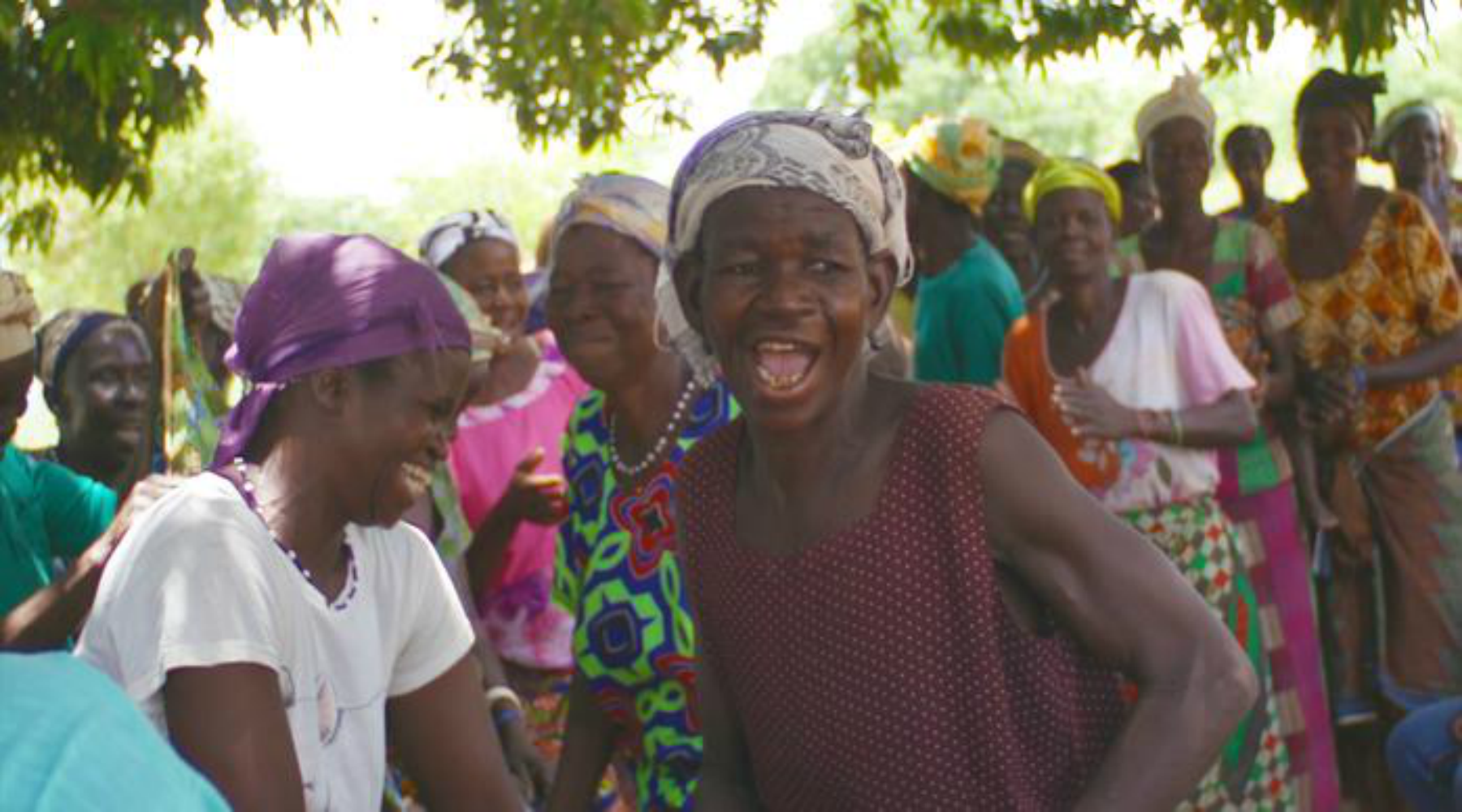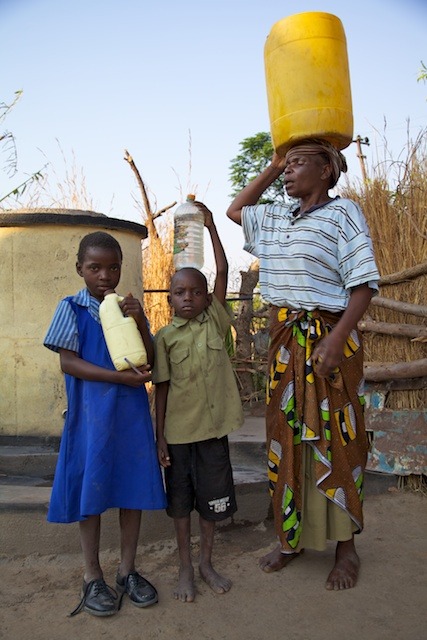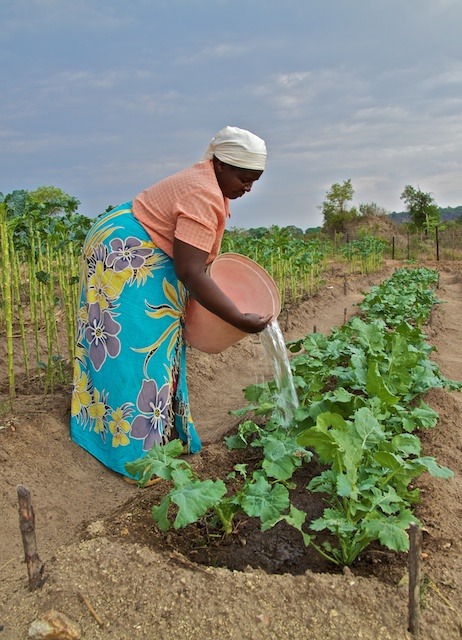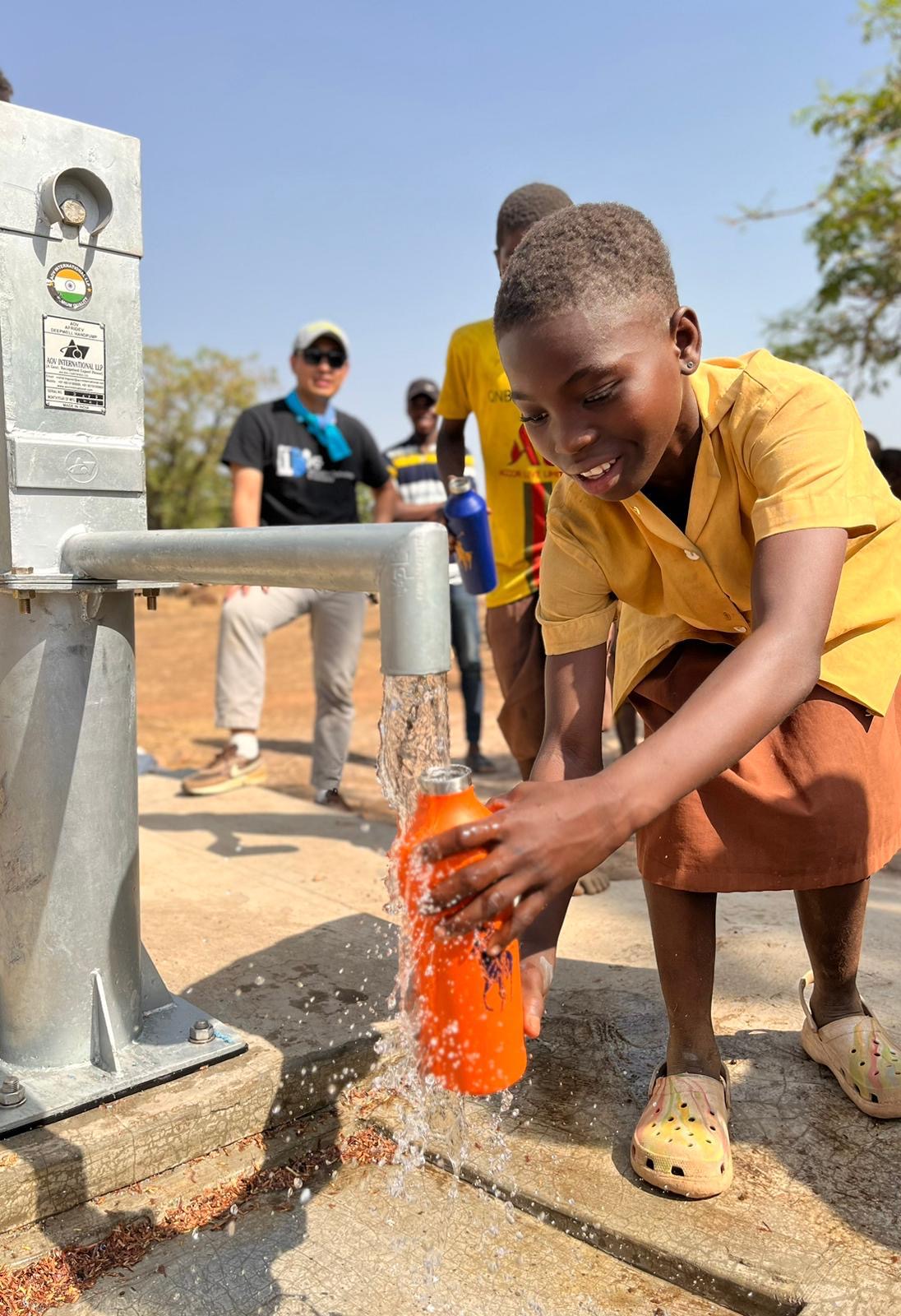
Do You Want to Empower African Women? Give Them Access to Clean Water.
If you live in a Western country, you’re familiar with how the feminist movement is changing society. This has led to women standing up and speaking out to defend their rights. They’re asking for more leadership roles in the workplace and compensation based on their skills, not their gender. Some women want to split household and child rearing obligations with their partners. And others want the freedom to behave as they wish without societal pressure.
Women empowerment starts at a much more basic level in the poorest regions of Africa. It starts with having access to basic human rights such as food, water, and proper sanitation. It’s hard to believe that today some 663 million people around the world still don’t have easy access to clean water. And an astounding 2.4 billion don’t have access to proper sanitation, clean and private toilets. Although water scarcity affects everyone, women have their own particular set of challenges.
How Does Water Shortage in Africa Affect Women?
In remote villages in Sub-Saharan Africa, women are mainly responsible for household duties and taking care of their family. It’s also their responsibility to secure water for their families. This task – of getting water - is often so simple for us; we just walk to a faucet and, boom, WATER. But for women and girls in these remote villages, it’s a lengthy 3.5-mile walk to get water. That’s longer than a 5K race course! It gets even more challenging during drought periods when the water table level drops. Women, then, have to dig deeper, travel to further streams, or make several trips in one the day.

This time spent collecting water prevents girls from attending school full-time. Even when they get to school, the lack of water compromises the quality of their education. Currently, 43% of schools in Ghana don’t have access to water. As a result, many students get dehydrated in the intense heat, which reduces their ability to concentrate. In many schools, girls and boys share toilets. That exposes girls to sexual harassment, humiliation, and rape. Not to mention the embarrassment and self-consciousness. Any girl would agree that being watched by your classmates while you’re in the bathroom is mortifying.
Girls face even greater challenges at school during their menstrual period. Period pads are expensive in rural African communities, causing girls to look for alternatives such as rags, leaves, newspaper and even mud. These methods are neither comfortable nor effective, often causing embarrassing blood stains. Many African cultures ostracize, mock and humiliate women during their periods. As a result, girls usually miss up to eight school days during their period. Sadly, many of them drop out of school right after reaching puberty.
In Ghana, 20% fewer girls are completing primary school compared to boys. This has further consequences for them later in life. Better educated women are healthier, have higher earning potential, and are more active in the formal labor force. They also provide better healthcare and education for their children. Clean water in schools increases girls attendance and a shot at a better future. That is why we recently funded a clean water project at a school in Wa, Ghana.
How Does Access to Clean Water Change African Women Lives?
When water is easily accessible, everything changes. Girls have more free time to attend school, learn, and play with their friends. Mothers can use their little available time to engage in income generating activities, such as soybean farming and Shea butter production.

Clean water also improves people’s health. No longer will they have to settle for the low-quality water that gives them diseases such cholera and dysentery (which is a fancy word for diarrhea). Clean water enables women to cook more nutritious food and adopt better sanitary practices. They are also able to develop better hygiene habits and teach their kids about hygiene as well. As a result, the rate of malnutrition and water-related diseases decrease drastically, and women can spend less time taking care of sick family members. Having access to clean water means that the 675,000 people who die prematurely from polluted water diseases get a chance to live.
Easy access to water and private toilets improves the well-being of women. They can go to the bathroom at any time without the fear of being seen, ridiculed or harassed. They can drink enough water during the day, which reduces their risk of contracting urinary tract infections (UTI) and increases their productivity. Knowing that clean water is readily available reduces the anxiety of women, as they don’t need to worry if their family will have enough water or will get sick from the polluted water.
Water really does change everything!
For the past 6 years, we’ve been funding water projects in Africa through the sales of our bottles. For each stainless steel bottle we sell, we give 5 years of access to clean water to a person in need. One of our main criteria for selecting a project is that women are involved in the management of the water well. This is done by electing women onto a water committee whose job it is to ensure the that the water borehole continues to work.
Being part of the water committee enhances a woman’s role in her community and her sense of self. She becomes an ambassador of the benefits of clean water for families and the community. She gains an active voice in decision-making processes, formerly dominated by men. She is empowered and empowers others towards a better, healthier future.
Every woman deserves the chance to live up to their full potential. In rural communities of Africa, that means giving them clean water. With water, women are able to live better lives, have healthier families, and contribute economically. They might even start asking their husbands to help with the dishes every now and then…


Comments (0)
Back to Stories